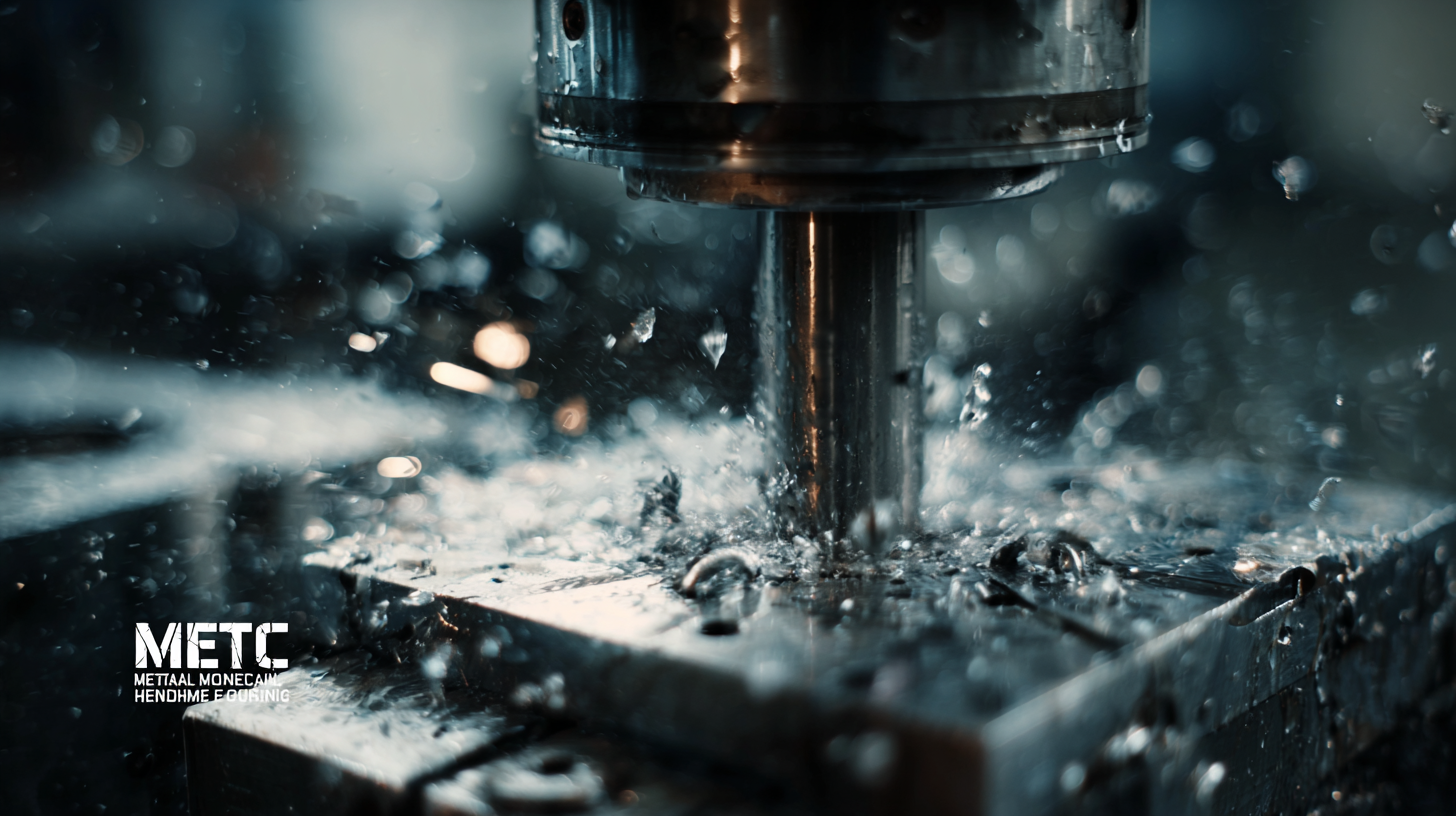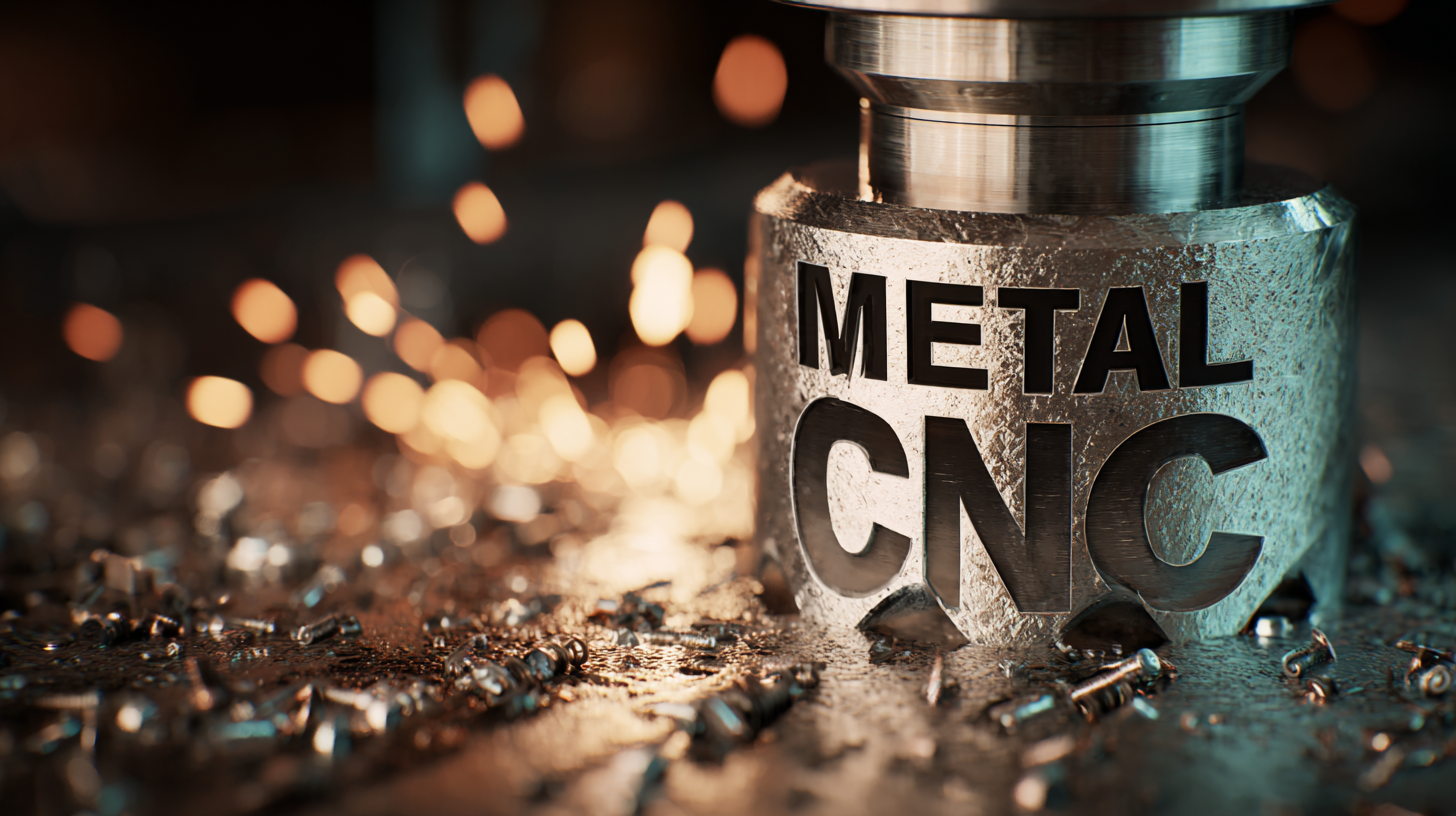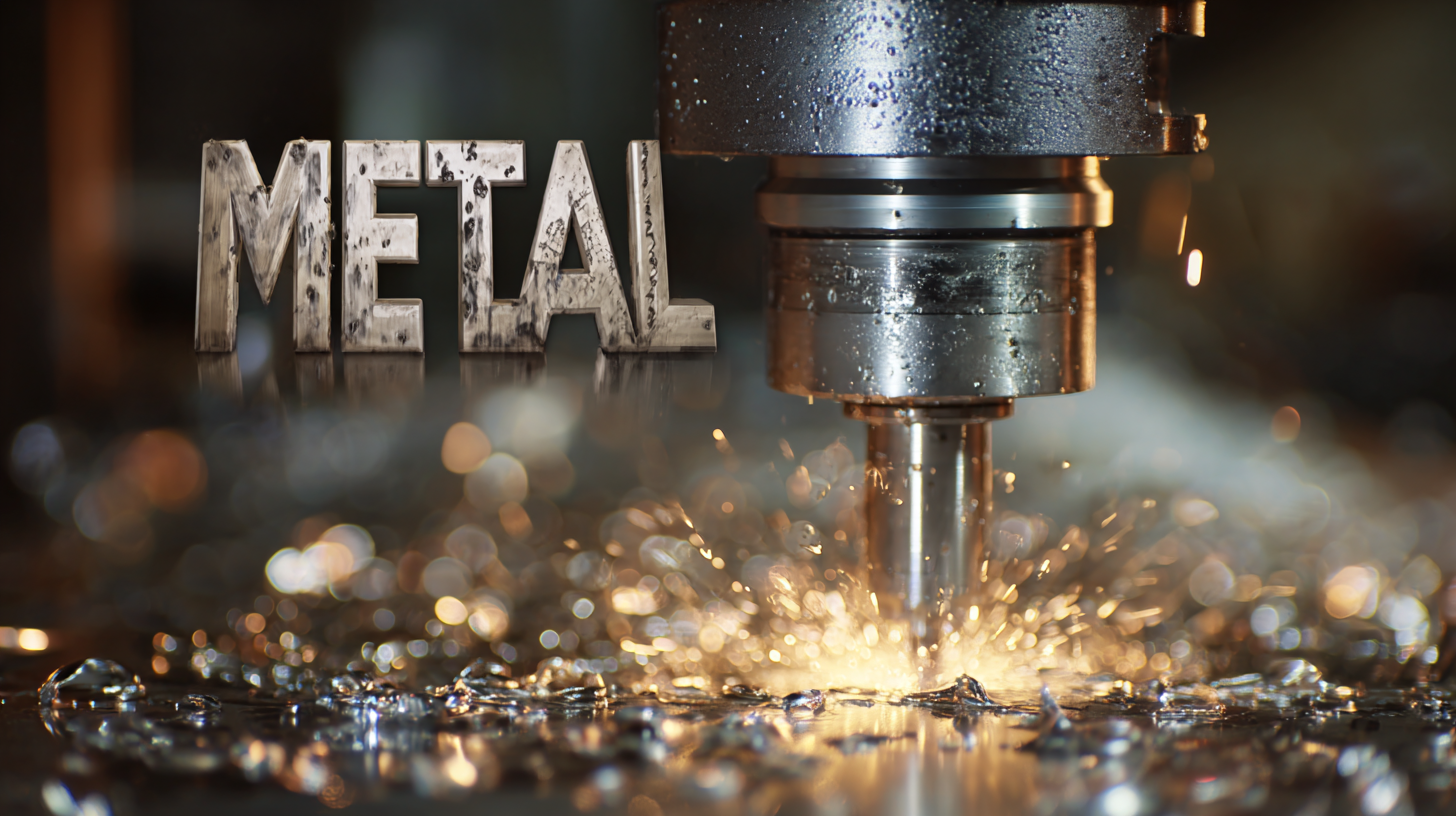
- sales@bjbod.com
- Mon - Sat at 7:00AM to 9:00PM

In the realm of precision engineering, the demand for advanced manufacturing technologies continues to rise. According to a report by MarketsandMarkets, the global CNC machining market is projected to reach $100.9 billion by 2025, driven by the increasing need for high-quality, precise components across various industries, including aerospace, automotive, and electronics. Among these technologies, Metal CNC stands out as the ultimate choice for ensuring both accuracy and efficiency. This technology enables manufacturers to produce complex parts with tight tolerances, minimizing waste and enhancing productivity.
 As China emerges as a leading provider of superior products through its quality factories, the integration of state-of-the-art Metal CNC systems is pivotal in meeting the stringent demands of global markets, ensuring that companies can maintain a competitive edge through innovation and excellence in precision engineering.
As China emerges as a leading provider of superior products through its quality factories, the integration of state-of-the-art Metal CNC systems is pivotal in meeting the stringent demands of global markets, ensuring that companies can maintain a competitive edge through innovation and excellence in precision engineering.
When exploring the key features of the best metal CNC machines for precision engineering, it's essential to consider several factors that contribute to their efficacy and performance. One of the foremost attributes is the machine's accuracy, which is typically measured in microns. Advanced CNC systems employ high-resolution motion control and sophisticated software capabilities to ensure that every cut is executed with the utmost precision, allowing engineers to create intricate designs and components with minimal error.
Another critical feature is the versatility of the machining capabilities. The best metal CNC machines can handle a variety of materials, including hard metals, which enhances their utility across diverse engineering applications. This adaptability is particularly important as industries evolve and demand more custom solutions. Moreover, the incorporation of automation and advanced tooling technologies further streamlines the machining process, boosting productivity and reducing lead times—a vital aspect as the global precision engineering machines market is projected to grow substantially in the coming years.
In addition, the integration of dust management systems, such as vacuum attachments, can help maintain a clean working environment, thereby ensuring both operator safety and machine longevity. This feature reflects a broader trend towards industry efficiency, evidenced by the projected 5.4% growth rate for the CNC machine tools market in the next several years. As engineers look to optimize their workflows, these key attributes will undoubtedly position the best metal CNC machines as essential tools in precision engineering.
The landscape of precision engineering has transformed dramatically with the advent of advanced technologies in metal CNC machining. Techniques such as high-speed machining, multi-axis machining, and 3D modeling have become essential tools that push the boundaries of accuracy and efficiency. High-speed machining allows for faster production times without compromising on the quality of the finished product, enabling manufacturers to meet tight deadlines and high-demand scenarios.
Moreover, the introduction of multi-axis CNC machines has revolutionized the capability to produce intricate and complex designs with precision. These machines can operate on multiple axes simultaneously, allowing for more detailed cuts and shapes that were previously challenging to achieve. The synergy of artificial intelligence in CNC programming further enhances this precision by providing predictive analytics and optimizing machining processes, leading to reduced waste and improved output quality in metal parts. As these technologies continue to evolve, they solidify metal CNC machining as the ultimate choice for precision engineering.
| Feature | Description | Benefits |
|---|---|---|
| High Precision | Utilizes advanced sensors and feedback systems to ensure tight tolerances. | Increased accuracy in machining parts, leading to lower rework rates. |
| Automation | Incorporates automated loading and unloading systems. | Reduces labor costs and improves production efficiency. |
| Multi-Axis Machining | Capable of 5-axis and 7-axis machining for complex geometries. | Allows for intricate designs to be manufactured without multiple setups. |
| Material Versatility | Suitable for a variety of metals including aluminum, steel, and titanium. | Enables manufacturers to work with diverse materials for different applications. |
| Enhanced Software | Advanced CAM software for optimal tool path planning. | Improves machining time and part quality through better path optimization. |
When it comes to precision engineering, the choice between
metal CNC machines and traditional machining methods can significantly affect production efficiency and accuracy.
According to a report by the International Society of Automation, CNC machines can improve productivity by up to 50% compared to manual machining processes.
This is largely due to their ability to produce complex geometries consistently and with minimal human intervention.
In contrast, traditional machining methods often rely heavily on skilled operators, making them more susceptible to human error and variability.
A study published in the Journal of Manufacturing Science and Engineering reveals that CNC machining typically results in a ±0.005-inch tolerance compared to
±0.010-inch for conventional methods. This enhanced precision not only reduces waste but also lowers long-term operational costs.
Tips for Choosing CNC Over Traditional Machining:

The proliferation of Metal CNC machining technologies has significantly enhanced precision across various industries, including aerospace, automotive, and medical device manufacturing. According to a recent report by MarketsandMarkets, the global CNC machining market is expected to reach $100 billion by 2025, driven by the growing demand for high-accuracy components. Metal CNC machining offers unparalleled precision, allowing manufacturers to create complex geometries with tolerances as tight as ±0.005 mm. This capability is crucial in industries where even the slightest deviation can lead to critical failures.
In the aerospace sector, where every component must meet stringent safety standards, CNC machining enables the production of lightweight yet robust parts. The use of titanium and aluminum alloys in aircraft components highlights the importance of precision engineering, as reported by the Aircraft Fleet Recycling Association, where the industry heavily relies on custom CNC machined parts for both new builds and retrofits. In the automotive industry, the rise of electric vehicles necessitates high-precision components to optimize performance and efficiency.
Tip: When selecting a CNC machining provider, ensure they use advanced technologies like multi-axis machining, which significantly increases design flexibility and accuracy. Additionally, it's beneficial to inquire about their quality assurance processes to guarantee that your components meet all required specifications. Regularly reviewing the latest technological advancements can also offer insights into the best practices for precision engineering in your specific industry.

When it comes to precision engineering, choosing the right metal CNC machine is crucial for achieving optimal results. There are several factors to consider that can greatly influence the machining process. Firstly, it's essential to evaluate the types of metals you'll be working with. Different CNC machines have varying capabilities when it comes to handling materials like aluminum, steel, or titanium. Understanding material properties will help in selecting a machine that can deliver the required precision and efficiency.
Another important aspect is the machine's specifications, including the spindle speed, feed rate, and tooling options. Higher spindle speeds generally allow for faster cutting and better surface finishes. Ensure that the machine not only meets productivity requirements but also supports the tools necessary for your projects.
Tips: Always check for the machine’s compatibility with software and ensure it can operate seamlessly with your existing setup. Additionally, consider maintenance and support options from the manufacturer, as a reliable after-sales service can significantly reduce downtime and improve overall productivity. Lastly, assess the learning curve associated with the machine; a user-friendly interface can make a substantial difference in training operators and achieving consistent results.